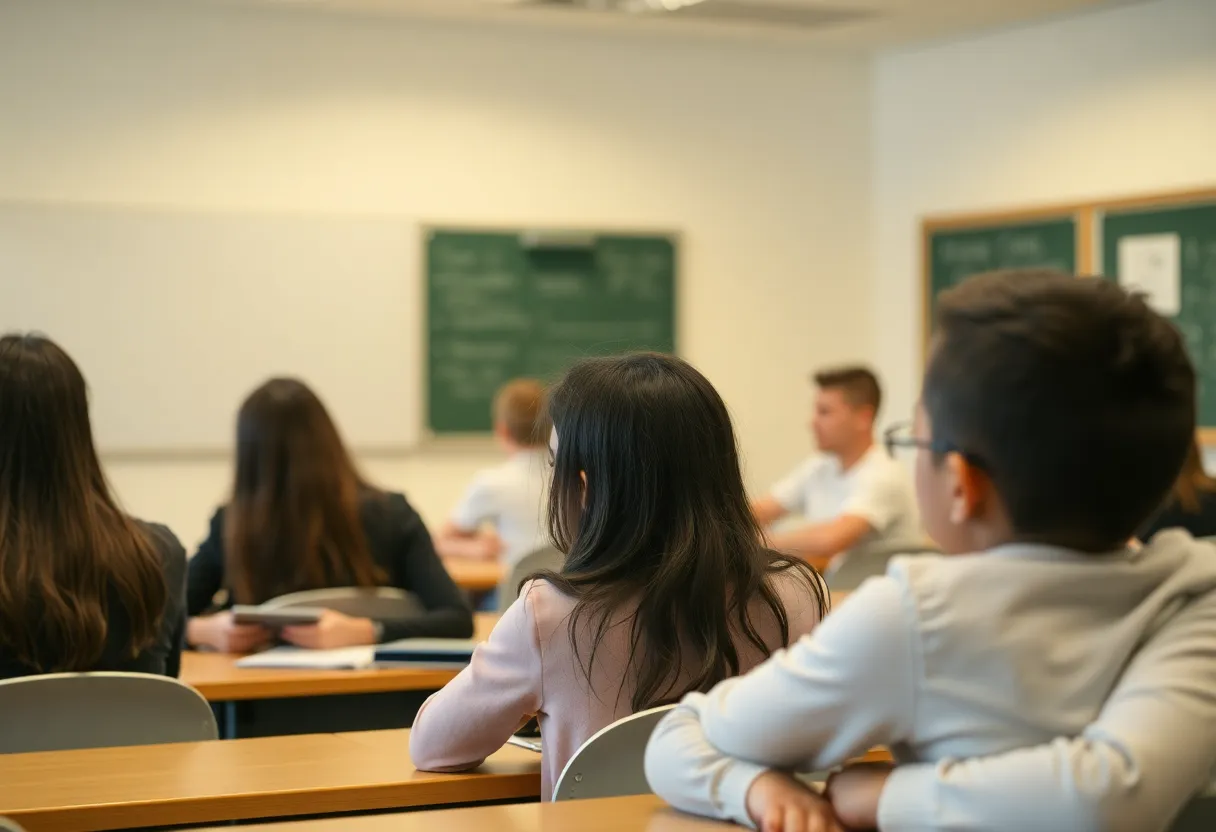News Summary
The Los Angeles Unified School District has officially banned students from using cellphones and personal technology during school hours to address concerns over mental health, bullying, and distractions. While aimed at fostering a better learning environment, the policy allows exceptions for students with disabilities. Advocates raise concerns about accessibility and potential isolation for students without exemptions as the district embarks on this new policy aimed at enhancing educational focus.
Los Angeles – As of February 18, 2024, students in the Los Angeles Unified School District (LAUSD) are officially barred from using cellphones, smartwatches, earbuds, and other personal technology throughout the entirety of the school day. This new policy, which expands existing restrictions, was approved by the LAUSD Board in June 2024.
The decision to implement a full-day cellphone ban comes amid rising concerns among board members regarding the impact of smartphones and social media on youth mental health, instances of bullying, and distractions that interfere with classroom instruction. The ban also aims to create an environment conducive to learning by reducing these interruptions.
Under the new policy, students are required to keep their devices stored in magnetically sealed pouches or their backpacks during school hours. This regulation applies to all students except those with Individualized Education Programs (IEPs) or Section 504 Plans, who may retain their devices under specified conditions. There are currently around 63,000 students with disabilities enrolled in LAUSD, many of whom rely on their cellphones for additional support.
Families of students with disabilities report that cellphones serve critical functions, such as controlling medical equipment, managing anxiety, and helping to regulate their children’s emotions. Despite the allowance for exemptions, many families must actively assert their rights to ensure their children are permitted to use their devices, as access to assistive technology is not guaranteed under the new restrictions.
For instance, one affected student, a North Hollywood middle-schooler named Faith, uses her cellphone to manage her cochlear implant and maintain communication with her peers. However, without a clear understanding of how to navigate the exemptions, families may struggle to demonstrate the necessity of cellphone access. This situation has raised concerns that students without exemptions could potentially lose important learning tools and feel isolated among peers who have access to devices during school hours.
Parents and advocacy groups have expressed a range of opinions regarding the cellphone ban. While some acknowledge the potential benefits of reducing distractions in the classroom, others worry about the implications for emergency access to phones and the adverse effects on students reliant on technology for academic and social engagement. Advocacy groups have also raised concerns about the ban’s unintended consequences, arguing that it can create barriers for students who rely on their devices as an integral part of their learning experiences.
Research on the mental health effects of cellphone restrictions yields mixed results, with studies indicating that limiting mobile device use does not necessarily correlate with improved overall phone or social media use among adolescents. The LAUSD’s policy is positioned as a proactive step to enhance the educational atmosphere by encouraging face-to-face social interactions and increased focus in academic settings.
While LAUSD has reported positive initial feedback from educators and students, noting heightened attention and engagement in the classroom, some students have already begun to find ways to circumvent the ban. Reports indicate that a number of students have created decoys or utilized other methods to access their phones during school hours.
As the new regulations are put into practice, parents and guardians are encouraged to communicate with school officials to address individual needs regarding cellphone usage. The balancing act of promoting an engaging educational environment while ensuring equitable access to technology remains a key point of contention following the implementation of this cellphone ban.
Deeper Dive: News & Info About This Topic
HERE Resources
Bear Creek High School Cell Phone Policy Reduces Vaping
Baltimore Woman Charged in Waynesboro Check Fraud Case
Additional Resources
- LAist: LAUSD Cell Phone Ban
- Wikipedia: Cell Phone
- Los Angeles Times: LAUSD Cellphone Ban Updates
- Google Search: Cellphone Use in Schools
- NBC Los Angeles: LAUSD Cell Phone Ban
- Google Scholar: Impact of Cellphones on Education
- ABC7: LAUSD Cellphone Ban Details
- Encyclopedia Britannica: Technology in Education
- CBS News: LAUSD Cellphone Ban Overview
- Google News: LAUSD Cellphone Policy
Author: STAFF HERE BALTIMORE WRITER
The BALTIMORE STAFF WRITER represents the experienced team at HEREBaltimore.com, your go-to source for actionable local news and information in Baltimore, Baltimore County, and beyond. Specializing in "news you can use," we cover essential topics like product reviews for personal and business needs, local business directories, politics, real estate trends, neighborhood insights, and state news affecting the area—with deep expertise drawn from years of dedicated reporting and strong community input, including local press releases and business updates. We deliver top reporting on high-value events such as the Baltimore Book Festival, Preakness Stakes, and Artscape. Our coverage extends to key organizations like the Baltimore Chamber of Commerce and Visit Baltimore, plus leading businesses in shipping and healthcare that power the local economy such as the Port of Baltimore and Johns Hopkins Medicine. As part of the broader HERE network, we provide comprehensive, credible insights into Maryland's dynamic landscape.





